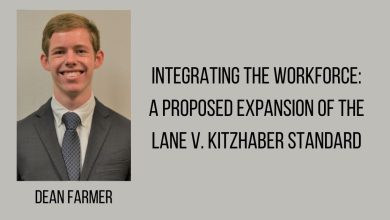Alito: Flagged for Controversy Again

People are asking questions. Does the Alito family’s choice of flags signal a bias favoring one time President and 41-time all-star felon, Donald Trump? Of course. Is the Alito duo just attempting to cover up their attempt to spice up the bedroom with a little flag-play? We don’t kink shame here. People also wonder: Should we care about the neutrality of the Supreme Court? Undoubtedly—those minion memes on Facebook have never steered our country wrong. But do we care? In the eyes of a surprising amount, but unsurprising makeup, of Americans, that’s a question still up for debate. Thankfully, students and alumni of the University of Michigan are sure to be able to answer that question after today.
The Res Gestae team was provided photo evidence of an Ohio State University flag being flown outside the residence belonging to Justice Alito and his wife. The photo was taken October 26th, 2023, the day after the investigation into Jim Harbaugh was announced. At this point, your first question might be: “Why was someone creeping around taking pictures of a Supreme Court justice’s house?” It is our paper’s policy to keep our sources confidential. But we are legally obligated to inform you that we do not condone invading the privacy of judges to “find out what they’re interested in” and use that information to “become their new best friend.”
Of course, we should be suspicious of anyone that flies an OSU flag. After all, they are inferior both morally and intellectually. But does the flag flying imply Justice Alito’s bias against the University of Michigan if we were to ever litigate in front of the Magic 8-Ball that we call the “Supreme Court?” In our opinion, signs point to yes.
We had a reporter from the Res Gestae team head to Castle de l’Alito to see what he had to say. Our reporter got to speak with the justice, himself, in his doorway on the condition that everything would be off the record. The following is an exact account of the exchange.
When our reporter asked the anonymous source for a comment, he was quick to point out that he “has a wife” who “is a woman” and that she is “very real.” He then blamed her for the flag, “You know how women can be.”
When our reporter asked to speak with Mrs. Alito, Justice Alito (editor’s note: remember to remove name) the anonymous source, appeared to get very defensive. He began shouting, “No! She is real! But you can’t see her! I mean, you could literally see her, because she’s real! But she’s not here right now!” He then pulled out a business card that, to our reporter, appeared to just be a collage of explicit images. Holding it up to the reporter he proudly explained that he was a “card carrying feminist.” He began grumbling about this being the fault of the “girl down the street” who was a “wolverine loving bit–” cut off by him slamming the door.
It turns out that this flag flying was sparked by a neighbor’s yard sign. The sign simply stated, “Go Blue!” We caught up with the owner of the sign and asked her about the Alitos. She replied, “Have you ever noticed that they are never in the same room at the same time? It’s always one or the other. Very strange!” Turning to the neighborhood feud, she recalled, “I just wanted to show my support for Jim. Then, suddenly, Mrs. Alito jumped out of my hedge and started screaming at me! It was scary to have all 5 feet and 11 inches of Mrs. Alito towering over me. Even despite the fact that she was wearing her signature maid outfit and using one hand to hold onto her wig.” The neighbor told our reporter that Mrs. Alito, in her strained falsetto voice, kept repeatedly yelling “Network of spies! Network of signal-stealing spies!” The terrifying affair only ended when the neighbor was able to retreat into her house. Now, every time she goes outside, she fears for her hedge’s life.
Maybe, to some, this would be clear enough evidence that Justice One-for-Alito should have to recuse himself in any case involving the University of Michigan. But to those people, we say: “Yeah, but did he ever actually say the words ‘I am biased against the University of Michigan?’” Hmm? What do you say to that? That’s right. You can’t say anything. Because you’re READING this and we’re not having an actual conversation, idiot.
Res Gestae Managing Online Editor Noah Rotroff can be reached at nrotroff@umich.edu.



